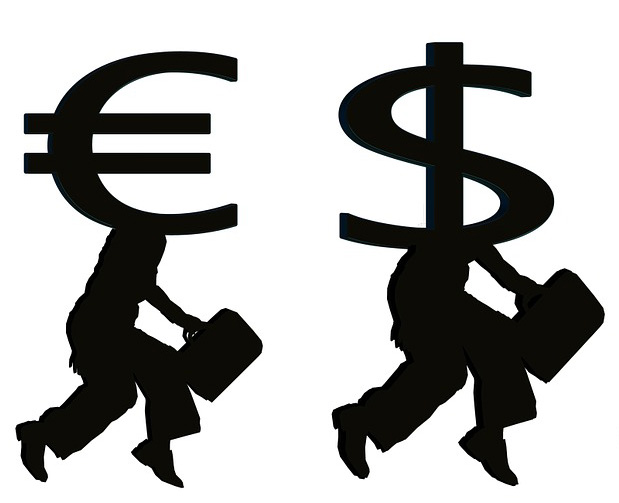Oct
1


MOST AMERICANS would gladly opt out of their long-term relationship with the Internal Revenue Service. To that end, a good many of us pay CPAs to ensure we don’t give the IRS one penny more than we must.
So when sundry people and corporations manage to avoid paying billions in arguably due taxes, you’d think we might celebrate them as rebels for our cause. We don’t. We make of them objects of scorn. Willingly or not, if we have to cough up, we reason, so should they. Else, we are carrying their load.
Readers may recall hotel magnate Leona Helmsley, who with her husband was convicted of tax evasion in 1989. It seemed the Helmsleys had written off $8 million under hotel maintenance expenses which they had in fact spent remodeling their private, 21-room mansion. At trial, the Helmsleys’ housekeeper famously testified to having heard Leona say, “We don’t pay taxes. Only the little people pay taxes.”
The Helmsleys broke the law, but even legal tax evasion can get up the public’s dander. Perhaps you have heard the words “tax return” bandied about with reference to a certain presidential candidate. The accusations of “not paying taxes” do not include a reference to fraud—although perhaps some raising the hue and cry would gladly let you infer as much—but rather that it simply ain’t fair.
Apple, Inc. should be pleased.
The noise of the election tax issue has to an extent diverted attention from Apple’s recent, alleged abuse of international tax laws. Apple took advantage of what is colloquially known as the Double Irish Arrangement, which essentially consists of setting up a company that doesn’t really exist in any particular place along with a nominal presence in Ireland to meet minimal tax obligations.
The European Commission was not amused. In an August 30 press release, the Commission wrote:
… most profits were internally allocated away from Ireland to a “head office” within Apple Sales International. This “head office” was not based in any country and did not have any employees or own premises. Its activities consisted solely of occasional board meetings. Only a fraction of the profits of Apple Sales International were allocated to its Irish branch and subject to tax in Ireland. The remaining vast majority of profits were allocated to the “head office”, where they remained untaxed.
Therefore, only a small percentage of Apple Sales International’s profits were taxed in Ireland, and the rest was taxed nowhere. In 2011, for example (according to figures released at US Senate public hearings), Apple Sales International recorded profits of US$ 22 billion (c.a. €16 billion) but under the terms of the tax ruling only around €50 million were considered taxable in Ireland, leaving €15.95 billion of profits untaxed. As a result, Apple Sales International paid less than €10 million of corporate tax in Ireland in 2011 – an effective tax rate of about 0.05% on its overall annual profits. In subsequent years, Apple Sales International’s recorded profits continued to increase but the profits considered taxable in Ireland under the terms of the tax ruling did not. Thus this effective tax rate decreased further to only 0.005% in 2014 …
The Commission’s investigation has shown that the tax rulings issued by Ireland endorsed an artificial internal allocation of profits within Apple Sales International and Apple Operations Europe, which has no factual or economic justification.
The European Commission has ordered Apple to pay the equivalent of about $14.5 billion US plus interest in back taxes. This is not good news for Apple, even though a Washington Post article opined that “…$14.5 billion in back taxes is just a slice of Apple’s cash stockpile.”
In an open letter on behalf of Apple, CEO Tim Cook stated Apple’s intention to appeal. Meanwhile, the United States has expressed concern that the repayment could unfairly fall upon U.S. taxpayers’ shoulders. Bgr.com’s Chris Mills wrote:
The US Treasury Department has been unusually vocal about this case, in statements last week and also after the ruling was handed down today. Mostly, the Department objects to retroactive taxation, which is says is “unfair, contrary to well-established legal principles, and call into question the tax rules of individual Member States.”
On the other hand, Forbes writer Jeffery M. Kadet argues that, on the contrary, U.S. taxpayers won’t end up picking up Apple’s back tax bill.
Apple isn’t the only multinational hovering over hot water for exploiting international tax loopholes. It is to date simply the most infamous. Last year at this time, the EU ordered Starbucks and Fiat Chrysler to repay in euros the equivalent of about $34 million US apiece. As I write, the EU is looking into Amazon, McDonald’s, and Google, to name a few.
In two weeks, the election will be over and with it, hopefully, its accompanying noise. Perhaps at that time the tax conversation will resume with Apple et al as its focus.